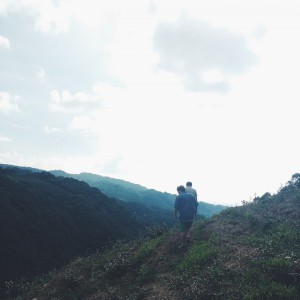In this second part of the series on under appreciated Internal Alchemy documents of the Tang dynasty we will look at the Tai Shang Daily Practice Internal Subtlety Classic. The text is attributed to Lao Dan, a legendary hermit of the Zhou dynasty period. This text is written in a Tang dynasty style and discusses early concepts in the concept of internal alchemy meditation. The genuine author of the article is unknown, but it has been included within the Daoist Canon and is used by many practitioners of internal alchemy and Quanzhen Daoism.
Below we present the entire document.
夫日用者,饮食则定。
The use of daily practice is in controlling the proclivity to eat and drink,
禁口独坐,莫起一念,万事俱忘,存神定意,口唇相粘,牙齿相著,眼不视物,耳不听声,一心内守,调息绵绵,微微轻出,似有如无,莫教 间断,自然心火下降,肾水上升,口内泔津自生,灵真付体,自知长生之路。十二时辰,常要清静。灵台无物为之清,一念不起为之静。
Close the mouth and sit alone, don’t allow one thought to arise, all events are completely forgotten. Contain the spirit and stabilize your intention, close the lips and align them together, allow the teeth to line up and come into contact with each other. The eyes don’t look at anything, the ears don’t listen to any sound, one mind is contained within. Gradually adjust the breath. Subtle and light, let it go, it is like everything is nothing, there is no teaching and space is broken. Naturally allow the mind to descend, the kidney water will fly up. The mouth will naturally produce sweet saliva, the spirit will naturally animate the body and you will know the road of longevity. For all twelve times of the day and night, you must always maintain clarity and quiet, the spiritual platform has the clarity of no nature, one thought does not arise in the silence.
身是炁之宅,心是神之舍。
The body is the home of Qi, the mind is the residence of consciousness.
意行则神行,神行则炁散;意住则神住,神住则气聚。
The intention moves and the spirit moves, the spirit moves and the Qi is scattered. The intention rests and the spirit rests, the spirit rests and the Qi is full.
五行真气,结成刀圭,自然身中有声,行处坐卧,常觉身体如风之行,腹内如雷之鸣。
The true Qi of the five elements comes together and cuts the pill, naturally there is a sound in the centre of the body. Walking, resting, seated or lying down, it forever seems as though the body moves like the wind, the inside of the stomach is like the howl of thunder.
冲和气透,醍醐灌顶, 自饮刀圭,耳听仙音。
Rushing through, the Qi harmoniously passes, the refined substance floods the peak. Drink your jade pill, and hear the music of the immortals.
无弦之曲,不抚而自声,不鼓而自鸣。
The music with no strings, with no stroke it sounds by itself, with no drum it howls.
神炁相结,如男子怀孕,得观内境,神自言语,是虚无之宅,与圣同居,炼就九转,结成大丹。
The spirit and qi collect in each other, as if a man is pregnant with a child, achieving the act of looking at your internal environment, the spirit speaks its own language, it is the home of void emptiness, and comes together with the resting place of the sages, cultivating the nine turnings, collecting and transforming the great elixir.
神自出 入,与天地齐年,日月同明,脱离生灭矣。
The spirit comes and goes by itself, and meets with heaven and earth, being equal with their years. The sun and moon come together in clarity, and you can leave behind life and death.
每日休教有损失,十二时辰常要清静,炁是神之母,神是炁之子,如鸡抱卵,切要存神养炁,能无离乎妙哉。
If you don’t study every day you will begin to lose it. For all twelve times of the day and night you should remain in clarity and quiet. The qi is the mother of the spirit, the spirit is the child of the qi. It is like the chicken holding her egg, and the real secret is the contain the spirit and cultivate the qi, then you will not leave its subtlety.
玄之又玄。 人身中有七宝,事为富国安民,精炁盈满也。精是水银,血是黄金,炁是美玉,髓是水晶,脑是灵砂,肾是砗磲,心是珊瑚。此是七宝,归身不散,炼就大药,万神 尽登仙矣
the mystery contains mystery. People’s bodies have seven treasures that can be used to make a rich nation and peaceful people, their Jing and Qi robust and full.
Jing is the silver needle in water, blood is yellow gold, qi is the beautiful jade, marrow is the water crystal, the brain is the spirit sand, the kidneys are the ocean clam, the mind is the choral reef. These are the seven treasures, they return to the body and are not scattered, cultivating them can build the great medicine, the myriad spirits exhausted and rise to immortality.
